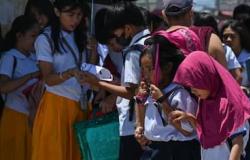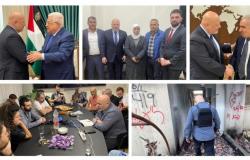
«Russia is not fighting this war for territories but for guarantees and ironclad security agreements. Ukraine must be absolutely neutral.”
Dmitry Suslov he directs the Center for European and International Studies at the Moscow Higher School of Economics and is one of the most listened to foreign policy advisors in the Kremlin.
At what point is the war?
«The situation of the forces on the ground has now evolved decidedly in a direction favorable to Russia, which prevails in every aspect, weapons, soldiers, advantage of the initiative. The only field where there is a certain balance are drones. And this situation is not destined to change even in the medium term. Even if the US were to release the famous 60 billion in military aid to Kiev blocked by Congress, the West would not be able to compensate for Russian military production for years to come.”
But won’t the new mobilization, voted by the Ukrainian Parliament, have an effect on the field?
Anus. It reflects the desperate situation Ukraine finds itself in right now. Look, the general internal picture is disastrous for Kiev: demographically, economically, socially and even politically. Zelensky’s popularity is declining, there is growing distrust and instability. The only institution that Ukrainians still trust is the armed forces.”
These days we are back to talking about ceasefires and negotiations. The Swiss also called a peace conference in June, where Russia has said it will not go. What’s concrete?
“Of course. If we consider the situation in Ukraine and keep in mind the prospect of the American elections and the difficulties of the Europeans in terms of maintaining support for Kiev, then the growing pressure and work underway among Westerners towards some form of freezing and negotiation. There is no doubt: there is an intense diplomatic movement, see the Swiss conference which is intended as a potential forum for negotiations. Seen from the Russian perspective, the Biden Administration is interested in a ceasefire before the presidential elections, which could be presented as a step aimed at preserving Ukraine as a country free from Russian and pro-Western influence, despite the fate of some of its territories would remain suspended. Furthermore, at the NATO summit in July in Washington, the allies would make the symbolic gesture of announcing the promise to anchor it to the Western security system. There are already bilateral agreements between many countries and Kiev, Tony Blinken speaks of NATO’s outstretched hand and the European Union has already declared Ukraine a candidate. In summary, the United States would like to freeze the conflict, in exchange for an intensification of Ukraine’s cooperation with the West, including rearmament, but without the entry of NATO for the moment.”
If this were the case, the situation on the field would be photographed, which as you explained sees Russia with a clear advantage. Isn’t that a good base to start from?
“Excellent question: the answer is no, absolutely not. You see, Russia is not fighting this war for territories but for guarantees and ironclad security agreements. The minimum acceptable for an armistice could be a return to the Istanbul communiqué of April 2022, but with the de facto (if not de jure) recognition of Russian control over the conquered territories. That document established a neutral status for Ukraine, therefore the end of any talk of possible NATO membership and strict limits on the size of its armed forces. Furthermore, Russia is also asking for a robust limitation on military and intelligence collaboration between the West and Ukraine, i.e. nothing of what is happening now in terms of arms supplies, education, training, exchange of information. The Kremlin considers these preconditions indispensable, but we know that they are very difficult for the West to accept and even discuss. This is why we are convinced that the chances of a truce in the foreseeable future are very low. The bottom line is that for us Ukraine must be truly neutral. Maintaining the current level of cooperation between Kiev and the Westerners after a truce would be a defeat for Russia and this will never be acceptable for the Kremlin.”
But would everything change with Donald Trump in the White House?
“From Russia’s point of view, no. Even if Trump were re-elected, the American position would not change radically. A Trump Administration would likely push for a plan similar to Biden’s. When Putin said he preferred Biden to Trump because the current president is more predictable, it wasn’t just a joke. You see, if Moscow rejected the American offer, once re-elected Biden would still be careful not to provoke an escalation and would continue to move as he does now. But if Trump wins, and Moscow rejects the American deal as it currently is, then his likely reaction would be to intensify aid to Kiev and possibly make risky moves that could also lead to a nuclear confrontation between Russia and NATO. The Biden Administration is very critical of Macron’s idea of sending Western troops to fight in Ukraine, but no one knows what Trump’s position is on the matter.”
Let’s look at the internal situation of Russia. Putin was re-elected with a 90% majority, strengthening his position, but a few weeks later there was the terrible ISIS attack on Crocus City Hall. Is the system more fragile than you think?
«The terrorist attack did not change the political situation, it did not undermine public trust in Putin which remains high and above all it does not call into question the government’s policies. The Kremlin accredits the version that Ukraine had something to do with the attack and this makes it compatible with the entire narrative on the reasons for the war.”
But it is only one story, given that everything speaks of an action conceived and carried out entirely by the Islamic State.
“We see it differently, because the actions that Ukraine conducted before and after the Russian presidential elections move along this line. We remember the terrorist and drone attacks that were conducted by Ukrainian forces on Russian territory. And not from now.”
The Russian economy grew by 3.6% in 2023, but this growth was driven only by military spending. Is a war economy sustainable in the long term, at the expense of consumption and the population’s standard of living? Don’t you risk ending up like the USSR, which couldn’t resist the arms race?
“In reality, the agriculture and construction sectors are also growing. But it’s true, the driving element is military spending. You see, from our perspective, the confrontation with the West will continue for years, regardless of how long the war in Ukraine lasts. The geopolitical situation has radically changed. Sweden and Finland joined NATO. We are determined to continue our rearmament. With or without a ceasefire, our military-industrial complex will continue to grow and strengthen. But this is also true for the West. Of course, in the long run this could result in some economic distortions for us, but nothing comparable to those that led to the crisis of the Soviet regime, which was an inefficient and obsolete system. And in any case today Russia’s military spending in relation to GDP is much lower than that of the Soviet Union. The demand for weapons will continue to grow for decades, once the war in Ukraine is over we will continue to produce them, the strategic decision is to have an even larger army, and also we will be able to resume exporting our systems to the global South.”
Tags: winning field territories Ukraine neutral Corriere .it





